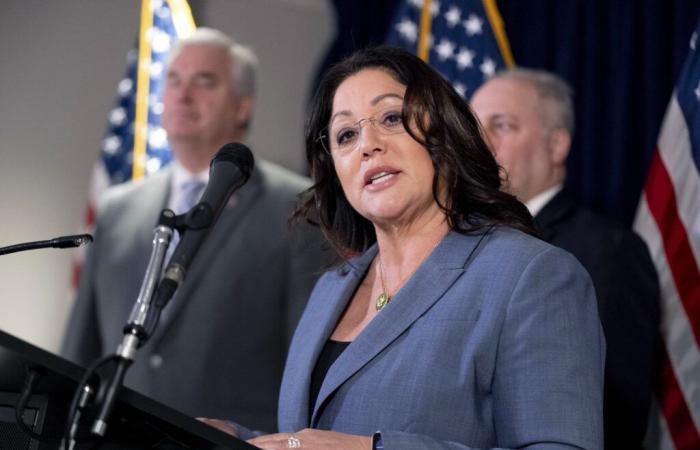As both parties vie for control of Congress, Oregon’s competitive U.S. House races have drawn national attention.
The state’s 5th Congressional District, held by Republicans, is one of the most hotly contested seats in the nation, with two additional races in Oregon’s 4th and 6th districts also on the radar.
The 5th Congressional District, long held by Democrats, turned red in 2022 for the first time in roughly 25 years.
Republican Rep. Lori Chavez-DeRemer now faces Democrat Janelle Bynum, a state representative who previously defeated Chavez-DeRemer in local legislative contests and has strong national Democratic backing.
Considered a “toss-up” by the Cook Political Report, this race has seen millions poured in by outside groups, signaling high stakes for both parties.
The district, redrawn after the 2020 census, spans a mix of affluent suburbs, rural agricultural areas, and the fast-growing city of Bend. Unaffiliated voters comprise the largest group, although registered Democrats still outnumber Republicans by about 25,000. Both parties hope the presidential election will increase voter turnout, especially in pivotal areas.
Rep. Lori Chavez-DeRemer, R-Ore., accompanied by Majority Whip Rep. Tom Emmer, R-Minn., left, and House Majority Leader Rep. Steve Scalise, R-La., right, speaks at a news conference on Capitol Hill in Washington, Jan. 25, 2023. On Tuesday, incumbent Chavez-DeRemer faces Democrat challenger Janelle Bynum in a fight for Oregon’s 5th Congressional District.
More
Andrew Harnik/AP Photo
Recent incidents have further stirred tensions. A ballot drop box outside Multnomah County’s election office in Portland was set on fire, damaging three ballots. Authorities linked this incident to other fires in nearby Vancouver, Washington, where hundreds of ballots were affected.
A Democratic Edge
Oregon’s 6th District, newly established through post-2020 redistricting, leans Democratic according to the Cook Political Report.
This advantage favors incumbent Rep. Andrea Salinas, who is running against Republican Mike Erickson, whom she narrowly defeated in 2022 by just 2.5 percentage points. Salinas, one of Oregon’s first Latina members of Congress alongside Chavez-DeRemer, has a significant fundraising lead over Erickson, with contributions topping $5 million compared to his $545,000.
The 6th District includes the state capital, Salem, affluent Portland suburbs, and rural areas in the Willamette Valley. President Joe Biden carried this area by about 13 points in 2020, providing further Democratic confidence as Salinas defends her seat.
Janelle Bynum, the Democratic candidate running to represent Oregon’s 5th Congressional District, poses for a photo on, July 21, 2024, in Portland, Ore. Bynum, who has previously beat her in legislative elections in the district and is backed and funded by national Democrats.
More
Jenny Kane/AP Photo
An Uphill Battle for Republicans
In the 4th District, Democratic Rep. Val Hoyle is seeking reelection in a region that encompasses Oregon’s southern coastal communities and college towns including Eugene and Corvallis.
Her opponent, Republican Monique DeSpain, a retired military lawyer, is positioning herself as an “outsider” aiming to shake up the district’s long-standing Democratic hold; the district has not elected a Republican since 1972.
Hoyle, who outpaced DeSpain in fundraising by about $1.6 million, remains a likely favorite according to Cook Political Report assessments. Still, the GOP is investing significantly in its efforts, with the National Republican Congressional Committee spending around $375,000 on ads opposing Hoyle in the hopes of flipping the seat.
Stakes Rise
With national implications, Oregon’s House races reflect the fierce competition for congressional control. The state’s districts, redefined by redistricting and demographic shifts, have drawn substantial funding and attention from both parties.
While poeple cast their votes, these races are a key focal point in the broader national contest for congressional dominance, spotlighting the critical role Oregon’s voters will play in shaping the next legislative term.
This article includes reporting from The Associated Press







